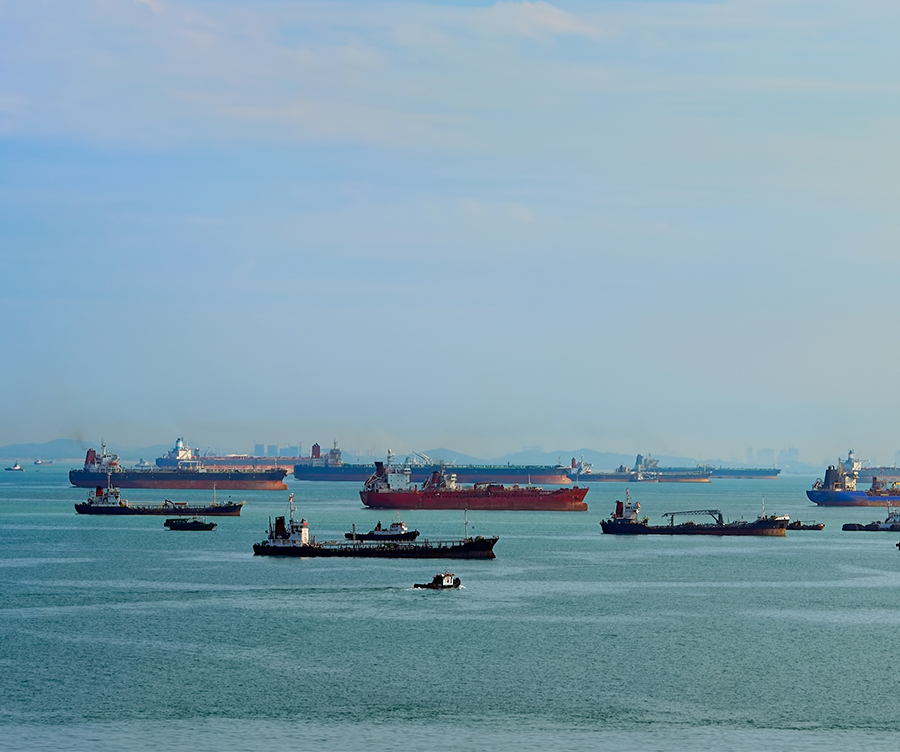Escalating Houthi attacks on vessels in the Red Sea have prompted a slump in containerised trade passing through the region, yet commodity flows appear to be remaining steady, research suggests.
January 9 marked the 26th attack on Red Sea commercial shipping lines since November, with rebels using Iranian-designed cruise and ballistic missiles to stage a “complex attack” on dozens of merchant vessels, according to a US government statement.
Though the incident was the largest assault since the start of the conflict, the missiles were shot down by US and UK military forces and there were no reports of damage or injuries, the statement says.
The attacks have sparked widespread fears over potential disruption to a vital trade route, and have prompted a bump in freight rates and insurance pricing.
But research from maritime intelligence firm MariTrace shows that most vessel types, including bulk carriers, tankers and general dry cargo ships, are continuing to use the Red Sea rather than reroute around Africa’s Cape of Good Hope.
“Despite the evident increased risks, there does not yet appear to have been a significant drop in commercial traffic that correlates with the attacks in the Red Sea – with one exception: container ships,” MariTrace says.
It notes the count of container ships in the area “declines significantly” after December 16, when US and UK forces shot down several attack drones targeting merchant vessels.
Marine Traffic data shows the number of container ships and roll-on roll-off cargo vessels passing through the Red Sea was 25% lower year-on-year in December.
However, the number of oil and gas tankers has remained steady. MariTrace finds there was a daily average of 76 tankers in the affected region throughout December, a drop of just three compared to averages between January and November.
The findings come despite caution among some major fuel traders, notably oil giants BP and Equinor, each of which announced last month they would halt oil and gas shipments in the Red Sea.
BP said on December 18 the decision was a “precautionary pause” and would remain “under ongoing review, subject to circumstances as they evolve in the region”.
Representatives from both companies did not comment when asked whether their stance has changed.
There had also been speculation that US fuel exporters could benefit from the situation. In volume terms, US petroleum exports rose 30% in a week after December 22, and were up nearly a quarter year-on-year, government figures show.
Those figures prompted Mizuho Securities USA’s Robert Yawger, executive director for energy futures, to suggest European customers might “load up on cheap US barrels” rather than risk attacks or bear the cost of vessels sailing a far longer route when buying from the Middle East or Asia.
MariTrace says the reason tankers appear more comfortable taking the Red Sea route than their containerised counterparts could be because the latter are more likely to be targeted by rebels.
It notes that in cases where targeted vessels have been identified “we see more than twice as many container ships involved in incidents than we do tankers”.
MariTrace suggests this could be because targeting tankers has a “limited” impact on global trade and power relations, whereas attacking cargo vessels is “likely to affect the UK, US and European consumer goods market, exacerbate global inflation and elevate food prices in the UK”.
Those price increases are likely to be caused by hikes in insurance and voyage costs, it says.
S&P Global Maritime Intelligence says shipping firms initially responded to the crisis by introducing “greatly elevated rates”. Container shipping rates from North Asia to northern Europe rose from US$1,800 to US$4,500 per 40-foot equivalent unit in the nine days after December 18, it finds.
That figure is the highest since October 2022, though still “well below” the pandemic-related costs seen in late 2021.
Houthi officials say attacks are a response to Israeli aggression against Palestinians, and will not stop “until the siege of Gaza is lifted”.
The US and UK each say there will be “consequences” for the Houthis if the campaign continues.







